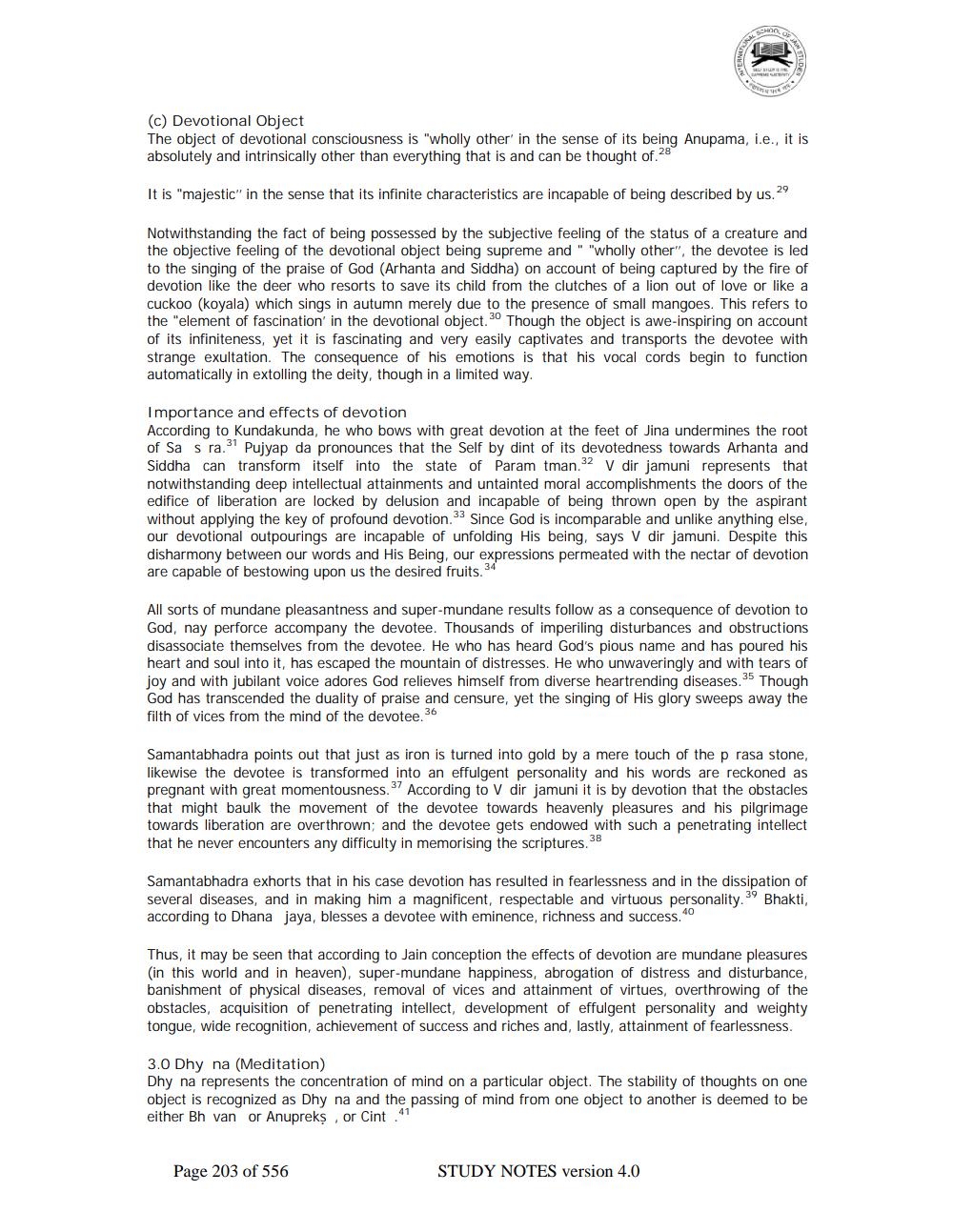________________
(C) Devotional Object The object of devotional consciousness is "wholly other in the sense of its being Anupama, i.e., it is absolutely and intrinsically other than everything that is and can be thought of.28
It is "majestic" in the sense that its infinite characteristics are incapable of being described by us. 29
Notwithstanding the fact of being possessed by the subjective feeling of the status of a creature and the objective feeling of the devotional object being supreme and" "wholly other", the devotee is led to the singing of the praise of God (Arhanta and Siddha) on account of being captured by the fire of devotion like the deer who resorts to save its child from the clutches of a lion out of love or like a cuckoo (koyala) which sings in autumn merely due to the presence of small mangoes. This refers to the "element of fascination' in the devotional object. 30 Though the object is awe-inspiring on account of its infiniteness, yet it is fascinating and very easily captivates and transports the devotee with strange exultation. The consequence of his emotions is that his vocal cords begin to function automatically in extolling the deity, though in a limited way.
Importance and effects of devotion According to Kundakunda, he who bows with great devotion at the feet of Jina undermines the root of Sa s ra." Pujyap da pronounces that the Self by dint of its devotedness towards Arhanta and Siddha can transform itself into the state of Param tman."2 V dir jamuni represents that notwithstanding deep intellectual attainments and untainted moral accomplishments the doors of the edifice of liberation are locked by delusion and incapable of being thrown open by the aspirant without applying the key of profound devotion." Since God is incomparable and unlike anything else, our devotional outpourings are incapable of unfolding His being, says V dir jamuni. Despite this disharmony between our words and His Being, our expressions permeated with the nectar of devotion are capable of bestowing upon us the desired fruits."
All sorts of mundane pleasantness and super-mundane results follow as a consequence of devotion to God, nay perforce accompany the devotee. Thousands of imperiling disturbances and obstructions disassociate themselves from the devotee. He who has heard God's pious name and has poured his heart and soul into it, has escaped the mountain of distresses. He who unwaveringly and with tears of joy and with jubilant voice adores God relieves himself from diverse heartrending diseases. 35 Though God has transcended the duality of praise and censure, yet the singing of His glory sweeps away the filth of vices from the mind of the devotee 36
Samantabhadra points out that just as iron is turned into gold by a mere touch of the p rasa stone, likewise the devotee is transformed into an effulgent personality and his words are reckoned as pregnant with great momentousness. According to V dir jamuni it is by devotion that the obstacles that might baulk the movement of the devotee towards heavenly pleasures and his pilgrimage towards liberation are overthrown; and the devotee gets endowed with such a penetrating intellect that he never encounters any difficulty in memorising the scriptures. 58
Samantabhadra exhorts that in his case devotion has resulted in fearlessness and in the dissipation of several diseases, and in making him a magnificent, respectable and virtuous personality. Bhakti, according to Dhana jaya, blesses a devotee with eminence, richness and success."
Thus, it may be seen that according to Jain conception the effects of devotion are mundane pleasures (in this world and in heaven), super-mundane happiness, abrogation of distress and disturbance, banishment of physical diseases, removal of vices and attainment of virtues, overthrowing of the obstacles, acquisition of penetrating intellect, development of effulgent personality and weighty tongue, wide recognition, achievement of success and riches and, lastly, attainment of fearlessness.
3.0 Dhy na (Meditation) Dhy na represents the concentration of mind on a particular object. The stability of thoughts on one object is recognized as Dhy na and the passing of mind from one object to another is deemed to be either Bh van or Anupreks, or Cint
Page 203 of 556
STUDY NOTES version 4.0




